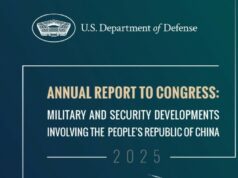
In the wake of the terror strike on tourists in J&K’s Pahalgam, fingers are being pointed at Pakistan Army Chief Gen Asim Munir’s address a few days ago, where he harked back to the “two-nation theory” and Kashmir as his country’s “jugular vein”.
Was that the signal for this attack? StratNewsGlobal spoke to former diplomats who served in Pakistan, members of the intelligence community and senior army officers who were involved in operations in Kashmir, and what emerged is this many layered narrative.
Unpopular Army Chief
The attack is directly linked to Gen Munir’s dipping popularity at home and the crisis the army finds itself in, is the consensus in some circles.
Despite a docile civilian government headed by a puppet prime minister, the popularity of jailed former prime minister Imran Khan remains a constant in the street and the man himself shows no sign of wanting to compromise with the army.
This spells danger going forward as Munir wants to remain in the saddle for at least two more years (and with some luck even beyond perhaps), but as long as Imran holds out, disaffection against the chief could manifest itself.
“Sections in the army are known to support “King Khan” and while the generals are unlikely to move against Munir publicly, they could conspire to weaken and make him irrelevant,” noted a senior former army officer.
Schisms And Fires
Others found it interesting that Imran Khan seems to be guarded by men drawn from Military Intelligence not the ISI. This suggests Imran Khan sympathisers in the latter service.
Add to that the growing fire in Balochistan, with the high point seen as the hijacking of the Jaffer Express last month by Baloch guerrillas. The Pak army seems to have no doubt that India is behind it.
Throw in the rising crescendo of attacks by the Afghanistan-based Tehreek-e-Taliban, which killed 26 Pakistani soldiers in the three-month period beginning Oct 2024, and it may explain what happened in Pahalgam.
A distraction was needed. No Pakistani general least of all Munir, have given a damn about Kashmir, so the attack on the tourists could signal a new line in the sand the Pakistanis have drawn.
“Things may only get worse from now,” warned a senior former intelligence officer, “they will carry out incrementally more strikes in J&K as the uniforms (Pak army) are losing credibility and increasingly seen as unable to keep things under control.”
If this translates into a loss of status, position or privileges for the army as an institution, then the fat will be in the fire for Munir.
Tahawwur Rana Factor
There is something else: the extradition of 26/11 facilitator Tahawwur Rana to India.
“Although many years have passed, Rana was privy to a lot of information and could spill the beans on many little known asp ects of the attack and the role of various people,” the former intelligence officer said. “In that sense Rana is an absolute nightmare.”
He does not rule out attacks being engineered in other parts of India to put the government in a position where it may have to compromise on Rana. It may seen far fetched but the Kandahar hijack of Dec 1999 is something the authorities need to keep in mind.
How Does India Respond?
The consensus in some army and diplomat circles is that Gen Munir is probably hoping for a conventional military retaliation by India, which if it happens, could unify Pakistan behind him.
That could also diminish support for the jailed Khan and with the Sharif brothers (Shahbaz and Nawaz) in his pocket, and the PPP a largely neutered force, Munir would have reason to celebrate.
An Indian attack could reinforce Pakistan’s ties with China and given that Bangladesh is moving closer to Islamabad, it gives Munir that much more leverage when it comes to India. Munir might even be able to revive Kashmir internationally.
For India there are no easy options. If we choose to “hot up” the LoC, Munir will go to town accusing India of breaking the ceasefire. Islamabad could claim victimhood and it’s important to note the ISI DG Lt Gen Asim Mallick, is close to Washington.
A “Balakot” like air strike on Muridke or anywhere else can lead to an Abhinandan-like situations with India not in control of the escalation. Therefore, the target should be a quasi-military one.
Non-Military Responses
Among the non-military actions India could sever or significantly reduce diplomatic ties with Pakistan, expel intelligence operatives posing as diplomats in the Pakistan High Commission and reclaim land allocated to the Pakistani High Commission.
India may withdraw its diplomatic personnel from Islamabad, limiting bilateral communication to email only and ban visas for Pakistani nationals. It could suspend the Indus Waters Treaty citing Pakistan’s lack of cooperation despite multiple legal notices.
India could mandate a No Objection Certificate from the Ministry of Home Affairs for Indian citizens seeking Pakistani visas.
India could suspend operations of the Kartarpur Corridor with immediate effect and halt direct and indirect trade with Pakistan, including via third countries like the UAE.
India could discontinue the Wagah Border Flag Ceremony, Beating Retreat, and similar events at Husseinwala and RS Pura borders
Thirty eight years in journalism, widely travelled, history buff with a preference for Old Monk Rum. Current interest/focus spans China, Technology and Trade. Recent reads: Steven Colls Directorate S and Alexander Frater's Chasing the Monsoon. Netflix/Prime video junkie. Loves animal videos on Facebook. Reluctant tweeter.




